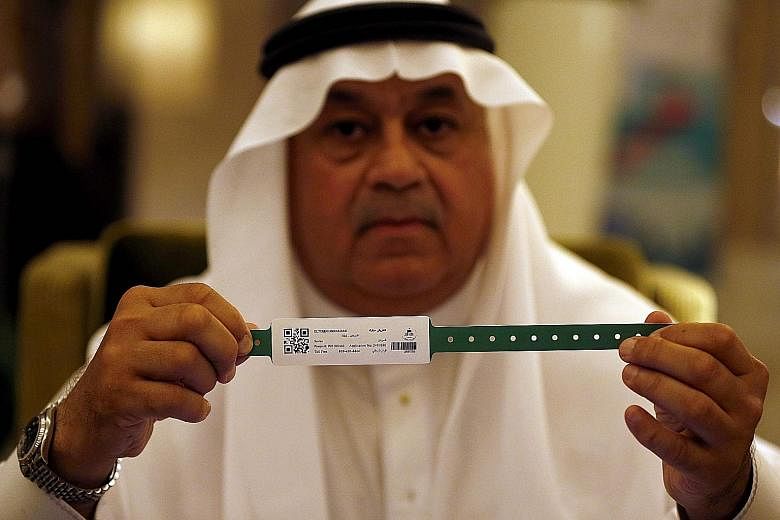MECCA • Close to two million pilgrims have converged on western Saudi Arabia for the annual haj where new measures, including tighter security and ID bracelets, aim to prevent a recurrence of last year's stampede which killed about 2,300 people.
While the main rites of the six- day event begin today, pilgrims have already been swirling around the holy Kaaba at the Grand Mosque in Mecca, in a procession that continues day and night. It is one of the first rites of the pilgrimage, which is among the largest religious gatherings in the world.
In one of several safety measures implemented after the stampede, access to the Kaaba - a black cube that Muslims across the globe face while they pray - is suspended during prayers, and the walk around it is stopped to avoid overcrowding.
The Saudi Gazette yesterday quoted mosque officials as saying the circumambulation area has been expanded to hold about 30,000 pilgrims an hour, up from 19,000.
Security has been reinforced around Islam's holiest site, with officers in red berets and camouflage uniforms manning green plastic barricades to control the crowd.
During the main weekly Friday prayers, a helicopter flew overhead and main roads in the city were shut to allow hundreds of thousands of pedestrians access.
The kingdom has begun issuing pilgrims with identification bracelets, after some foreign officials expressed concern about difficulties in identifying stampede victims.
Each bracelet has a bar code readable by smartphone. It indicates the pilgrim's identity, nationality, place of lodging in Mecca, as well as other information, said Mr Issa Rawas, the Vice-Secretary of the Ministry of Hajj and Umrah. Pilgrims from abroad are expected to number more than 1.4 million.
Local media says more than 300,000 faithful from inside Saudi Arabia are also expected.
Mr Zakou Bakar, 50, a pilgrim from Niger, said the bracelet was reassuring. "If I die or if there are problems - of course we hope not - but if it does happen I know I will be identified," he said.
Ms Jane Kinninmont, deputy head of the Middle East and North Africa programme at Chatham House, a London think-tank, said the stampede exposed "clearly some big organisational failings".
There was also "an absence of real transparency" about what went wrong, she said.
Riyadh announced a probe into the stampede, which happened during the haj stoning ritual, but no findings have been published.
The stampede has also contributed to renewed tensions between Saudi Arabia and its regional rival Iran, which is not sending pilgrims for the first time in nearly three decades.
Talks between Teheran and Riyadh on logistics and security fell apart in May. Iran said 464 nationals died in last year's crush, the largest number of dead by nationality.
The haj is one of the five pillars of Islam. Muslims who are able to do so must perform the haj at least once, marking the spiritual peak of their lives.
AGENCE FRANCE-PRESSE

